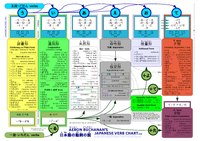
Photo from wikipedia
The phenomenal spread of Japanese lesson study (LS) beyond Japan is indicative of the perception that the seemingly obvious routines of LS are transferable into foreign contexts. It is, however,… Click to show full abstract
The phenomenal spread of Japanese lesson study (LS) beyond Japan is indicative of the perception that the seemingly obvious routines of LS are transferable into foreign contexts. It is, however, to be expected, that various aspects of LS would be adapted to suit the culture of the adopting context. The diverse ways in which LS is adapted across different contexts provides the opportunity for researchers to unpack what needs to be done to better adapt, implement and sustain LS to support teacher development across non-Japanese contexts. This paper is based on the findings from a nation-wide research project undertaken to explore the adaptations made to LS in Singapore schools. Surveys and case studies provided data to examine LS structure and implementation processes in Singapore schools and to investigate school leaders’ and teachers’ experiences and understandings of LS processes. In teasing out the subtle differences among the Singaporean adaptations and Japanese LS, we gleaned a deeper understanding of the cultural and contextual factors that elucidate key features of LS that are pertinent in creating the necessary conditions for effective teacher learning.
Journal Title: Educational Research for Policy and Practice
Year Published: 2019
Link to full text (if available)
Share on Social Media: Sign Up to like & get
recommendations!